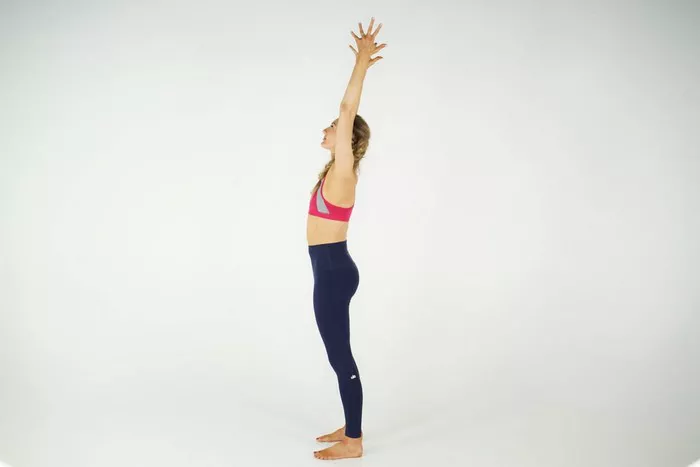Pregnancy is a profound journey filled with joy, anticipation, and, often, a multitude of physical and emotional changes. For expectant mothers, nurturing both their own well-being and that of their growing baby is paramount. While the benefits of yoga and meditation during pregnancy are widely acknowledged, delving deeper into their applications and intricacies reveals a plethora of transformative potentials. In this article, we explore the nuanced ways in which yoga and meditation can support pregnant mothers beyond their conventional understanding.
Holistic Support for Physical Changes
Pregnancy induces a myriad of physical changes in a woman’s body, from weight gain and postural shifts to hormonal fluctuations and increased strain on joints. Yoga, with its emphasis on breath awareness and gentle movements, offers invaluable support in navigating these changes. Prenatal yoga classes tailored specifically for expectant mothers provide a safe environment to engage in modified yoga poses that alleviate discomfort and promote flexibility.
Additionally, certain yoga asanas (poses) target common pregnancy-related issues such as back pain, pelvic instability, and swollen ankles. For instance, practicing Cat-Cow stretches can help alleviate back pain by gently mobilizing the spine, while supported standing poses like Tree Pose aid in improving balance and stability. Moreover, incorporating restorative poses bolstered by props such as bolsters and blankets can offer deep relaxation and alleviate tension in the body.
Cultivating Emotional Resilience
Pregnancy is not merely a physical journey; it encompasses a profound emotional rollercoaster marked by moments of elation, anxiety, and everything in between. Amidst this whirlwind of emotions, meditation emerges as a powerful tool for cultivating emotional resilience and inner calm.
Mindfulness meditation, in particular, equips expectant mothers with the skills to observe their thoughts and emotions without judgment, fostering a sense of acceptance and equanimity. Through regular meditation practice, pregnant women can develop greater emotional self-awareness, enabling them to respond to stressors with grace and composure.
Moreover, meditation techniques such as loving-kindness meditation (Metta) can deepen the bond between mother and child by cultivating feelings of compassion and connection. By directing loving-kindness towards themselves and their unborn baby, expectant mothers can foster a sense of maternal love that permeates their entire being.
Preparing for Labor and Birth
Labor and childbirth represent the culmination of the prenatal journey, and both yoga and meditation play pivotal roles in preparing expectant mothers for this transformative experience. Prenatal yoga classes often incorporate specific breathing techniques, such as Ujjayi breath and Dirga breath, which are instrumental in managing pain and promoting relaxation during labor.
Furthermore, practicing yoga poses that mimic labor positions, such as Squatting Pose and Child’s Pose, can help expectant mothers familiarize themselves with optimal birthing postures. By cultivating a sense of ease and comfort in these positions beforehand, women can navigate labor more confidently and efficiently.
In parallel, meditation serves as a potent tool for childbirth preparation by fostering mental resilience and focus. Visualization techniques, wherein expectant mothers envision a smooth and positive birth experience, can help alleviate anxiety and instill a sense of empowerment. Additionally, practicing breath awareness meditation cultivates mindfulness of sensations within the body, enabling women to ride the waves of contractions with greater ease and presence.
Bonding with Baby
The bond between a mother and her unborn child is sacred and profound, and both yoga and meditation offer avenues for deepening this connection. Prenatal yoga classes often incorporate partner poses and gentle massage techniques that encourage expectant mothers to tune into their baby’s presence within the womb.
Similarly, meditation practices centered around visualization and guided imagery provide opportunities for expectant mothers to communicate with their unborn child on a spiritual level. By creating a quiet space for introspection and connection, meditation allows mothers to cultivate a sense of intimacy and communion with their baby, fostering a bond that transcends words.
Postpartum Recovery and Self-Care
The journey of pregnancy does not end with childbirth; rather, it transitions into a new phase marked by postpartum recovery and the joys and challenges of motherhood. Yoga and meditation continue to play crucial roles in supporting women during this period of adjustment and transformation.
Postnatal yoga classes cater to the unique needs of new mothers, focusing on rebuilding strength, restoring pelvic floor health, and relieving tension in the body. Gentle yoga sequences supplemented with breathwork and relaxation techniques provide much-needed rejuvenation and self-care amidst the demands of early motherhood.
Likewise, meditation serves as a lifeline for new mothers grappling with sleep deprivation, hormonal fluctuations, and the emotional upheaval that often accompanies the postpartum period. By carving out moments of stillness and inner reflection, mothers can replenish their energy reserves and nurture their mental well-being, laying the foundation for a harmonious transition into motherhood.
Conclusion
Yoga and meditation offer pregnant mothers a holistic framework for nurturing their physical, emotional, and spiritual well-being throughout the transformative journey of pregnancy and beyond. By embracing the practices of yoga and meditation, expectant mothers can cultivate resilience, deepen their connection with their unborn child, and navigate the joys and challenges of motherhood with grace and mindfulness. As they embark on this sacred journey, may they find solace, strength, and profound transformation in the transformative power of yoga and meditation.























